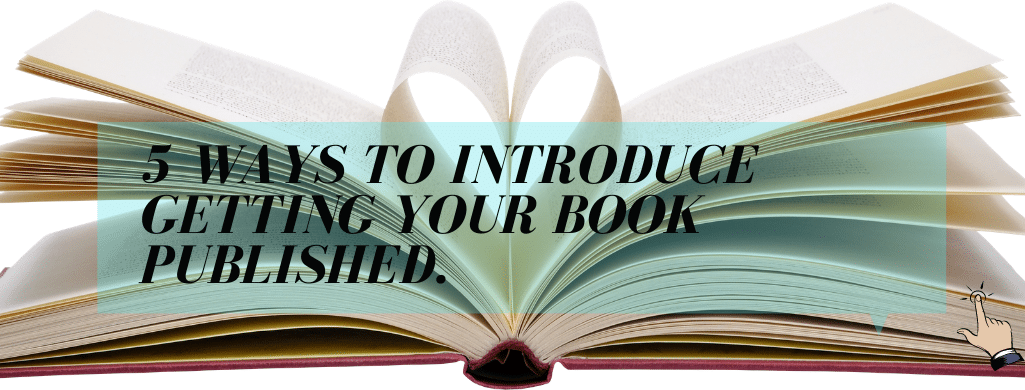How to Find Book Publishers
Are you interested in getting a book that you wrote published? If you are, you need to find the publisher that is the perfect fit for you and your book. Unfortunately, this can be easier said than done. Book publishers are picky about which books and authors they choose to work with. The good news is that there are hundreds of publishers for you to choose from, depending on your genre.
Once you have written and proofread your book multiple times, you will need to start researching and examining publishers. Unfortunately, this is a step that many hopeful published authors do not take. Many simply just send copies of their books off to publishers that they already know of. This approach is okay, but it limits your chances of getting a book published. Instead, you will want to examine as many book publishers as possible. Despite the fact that this sounds like a very time-consuming process, it is a process that is much easier than many imagine.
One of the easiest ways to find book publishers is by purchasing printed resource guides for authors. These guides come in a number of different formats. Many are categorized by genre, such as children’s books, Christian books, and so forth. What they typically do is outline publishers that accept manuscripts, as well as other detailed information. These printed resource guides are usually updated often; therefore, if you do make a purchase, be sure to purchase an updated guide. Speaking of making your purchase, you can find these publishing guides for authors available for sale online and in most bookstores.
As previously stated, there are a number of printed resource guides for authors that you can use to go about finding publishers to submit your book to. One guide that comes highly rated and recommend is that of the Writer’s Market. The Writer’s Market books cover a number of genres, and they are updated on a yearly basis. Information that is included tends to include themes that book publishers are looking for, requirements on submitting a manuscript, the address to which that manuscript must be submitted to and much more. The Writer’s Market books are also well-known for their expert tips and advice, which is typically provided by experienced authors.
Although most Writer’s Market books and other similar printed resource guides for authors can often be purchased for under $20, many people do not like paying for something that they can find for free online. If you are looking to use the internet to find book publishers, you will find that you do have a number of different options. For starters, you will want to perform a standard internet search with the phrase “book publishers.” If you are targeting a specific genre, such as children’s books, be sure to include that in your search phrase. Your standard internet search is likely to produce a number of different results.
As for what your standard internet search will produce, you will likely find websites where a large selection of publishers are listed. These websites may either list publishers with detailed information, or you may be provided with a link to a publisher’s website. Speaking of publisher websites, these websites can also be found mixed in with your standard internet search.
If you would like to directly find the online websites of book publishers, a standard internet search with the publisher’s name should produce the results that you are looking for. Most have guidelines and other information posted for authors on their websites. If you aren’t already aware of publishers, you may want to go through the books that you have in your home or visit your local bookstore. In fact, most online retailers will list what publishers’ books are published through. This can help to give you some publisher names to checkout.
As a reminder, it is important to find the publisher that you think will be the perfect fit for you and your book. Therefore, look for publishers that are seeking just what your book has to offer.
How to Get a Book Published: Common Questions Asked
Are you looking to get a book that you wrote published? Whether that book is a romance novel, a science fiction novel, a children’s book, or a book from another genre, there is a good chance that you have a number of questions. This is most commonly the case with new or unpublished authors. For your convenience, a few common questions that writers who are looking to get a book published to have and their answers are highlighted below.
Question: Is it easy to get a book published?
Answer: Not always. Of course, it is possible to get your book published, but did you know that most writers receive only rejection letters? With that being said, even if you do receive a rejection letter or even multiple letters for that matter, it is important not to give up. Many of the most well-known and successful authors today did not give up, even after many received multiple rejections. It takes time and trial and error to find the publisher that is the perfect fit for you and your book.
Question: How much money can I make?
As for determining how much money you can make when getting your book published, you will find that it honestly all depends. There are a number of varied factors that you will want to take into consideration. These factors include the publisher in question, the genre of your book, and its length. Typically speaking, books that are longer in length are likely more valuable, and well-known publishers are more likely to make more money. Your experience may also have an impact on what you receive.
Question: Do I need to have a literary agent?
It is no secret that literally agents are recommended. When researching tips on how to get a book published online, you will see a large number of individuals recommending that you use the professional assistance of a literary agent. Yes, there are many publishers who only work with authors who have agents, but many others do not have this requirement. If you cannot afford the cost of an agent, consider getting your book published on your own first. If you cannot, then consider hiring a literary agent to assist you.
Question: How do I find book publishers?
When it comes to finding book publishers, you will find that you have a number of different options. One of the easiest approaches to take is with the purchase of the Writer’s Market guide or another similar resource. These books typically sell for less than $20 each. They detail publishers for you in specific genres, outline what they are looking for, what requirements each publisher have, and so forth.
In addition to purchasing the Writer’s Market book or another similar resource, you can also use the internet to your advantage. Some websites highlight publishers that accept manuscripts, but you will find the best success by visiting the websites of each publisher. They should outline detailed information, much like what you would find in printed guides for writers.
Question: What are my chances of being published?
As with the amount of money you can make with a published book, you will find that your chances of getting your book published all depend on a number of factors. First, it is important to look at how many publishers you are approaching. The more publishers you approach, the better your chances are. It is also important to note that the Writer’s Market books detail for you on average how many books a publisher puts out each year. This can also help to give you a good idea as to what your chances of being published are.
The above-mentioned questions are just a few of the many questions that many new authors have about getting a book published. As a quick recap, be sure to do the proper amount of research first; in terms of publishers, never assume that you will make a certain amount of money until an offer arrives, and do not give up even if your book is rejected by a number of publishers.
How to Get a Book Published: Helpful Tips
Did you just finish writing a book that you would like to see published? If so, you may be looking for some guidance, especially if you are a new, unpublished author. Below a list of helpful tips on how to get a book published are outlined below.
It is important to never to make any concrete assumptions. For example, do not assume that your book will be published, but also don’t assume that it will be rejected either. Also, never make assumptions where the money is concerned. Do not expect to be paid at all or even a certain amount until you receive a solid offer from a book publisher. It is important to remember that you are taking a risk, especially if you are an unpublished author. Unless you are a published author or if you are a new author who has unlimited financial resources, do not quit your day job right away.
Next, it is important to be prepared for rejections. This is different from the above-mentioned tip of not making any assumptions, like that your book will automatically fail or be denied by all publishers. It is more than possible to get a book published, but it often takes time and trial and error, especially for new authors. This means that you should get used to the fact that rejection is common. Don’t expect it, but don’t feel heartbroken or completely give up if and when a rejection letter arrives in the mail.
Another helpful tip involves not assuming that you need to have a literary agent, especially right away. Yes, literary agents do improve most writers’ chances of getting published through a major publisher, but there is no written rule stating that you do need to use a literary agent. Many publishers still accept unsolicited book manuscripts. As an important note, should you decide to use a literary agent, be sure to use your best judgment? Examine fees, get feedback from past and current clients, and so forth.
In keeping with hiring a professional literary agent, if you are unsure about using the services of one, try your hand at not doing so first. The Writer’s Market book, other similar guides, and research online can tell you what publishers accept books from authors without agents. If you receive multiple rejection letters, then consider hiring an editor, as well as a literary agent.
As it was previously stated, the Writer’s Market books, other similar printed resources, and the internet can help you examine publishers. Be sure to read all information that is provided to you. This will prevent you from making many common mistakes. For example, some publishers only allow you to submit one book manuscript to them at a time, or submitting your manuscript to multiple publishers at the same time may be advised against. You may also find publishers that only accept book manicurists at certain months of the year. With the possibility of so many rules and restrictions, research is advised.
In keeping with what is expected of you and your documents, examine any formatting guidelines that may be imposed. There is nothing worse than submitting a manuscript that does not follow clear cut directions. Be sure to include a cover letter, as well as a self-addressed stamped return envelope, unless a publisher outright states that one is not required. Also, never send your original documents. Even if your manuscript is saved on your computer, be sure to always keep backups in both printed and disc formats.
The above-mentioned tips are just a few of the many things that you will want to keep in mind when looking to get your book published. As a reminder, it is not always easy to get a book published, but that doesn’t mean that you shouldn’t follow your dream. If you have a book written, go ahead and start submitting it to publishers. You have nothing to lose by doing so.
How to Get Your Book Published: A General Overview
Are you a writer who has just finished writing a book? If you are a first-time author, you may be unsure as to how you should proceed in terms of getting your book published. If that is the case, you will want to continue reading on, as a number of steps that you will want to take are highlighted below.
One of the first things that you will need to do is familiarize yourself with publishers. In addition to knowing where to send your book manuscript and who it should be addressed to, you will want to learn as much about the publisher in question as possible. What type of themes are they looking for? Will your book be a good fit? Are there are rules or restrictions in terms of formatting that you need to abide by? Does the publisher in question only accept agented submissions? These are all important questions that you need to have answers to.
As for how you can go about finding book publishers, you will be pleased with all of your options. You can look at the books that you own, the books in your local library, or the books in your local bookstores. Make a note of the publishers and perform a standard internet search with their names. Next, look for a section for writer’s guidelines. You can also perform a generalized standard internet search, such as with the phrase “book publishers.” There are also a number of printed resources, like the popular Writer’s Market books, that you can use as well.
As previously stated, you will want to learn what rules and restrictions publishing companies may have. If you can’t find this information online or in print, be sure to use your best judgment. Make sure that your book manuscript and all other documents are easy to read, formatted properly, and clean. Also, be sure to include a cover letter and a book proposal. Many authors choose to merge these two documents together. You can, but be careful. Cover letters and book proposals should be right to the point and not clouded with too much information.
You should also consider using the services of a professional literary agent and editor. They can be costly, but they are typically more than worth the costs. No matter how good you are at proofreading, you will likely miss some errors. The second set of professional eyes are advised. As for literary agents, they too have a number of benefits. If the publishers that fit your book the best only accept agented submissions, it may be in your best interest to hire a professional literary agent. They can help get your book into doors that you couldn’t.
As for follow-ups, they are okay but also be sure to use your best judgment. Most publishers outline on their websites how long it should take for you to receive a response, like in two to four months. If you do not receive a response by that time, consider placing a phone call or sending a letter to the publisher in question. For your own protection, though, do not make contact before the estimated response time.
By taking the above-mentioned points into consideration, you may be able to see your book in print soon. As a reminder, however, do not be scared of rejection letters. They are common, but that does not mean that you should give up.
How to Improve Your Chances of Publishing a Children’s Book
Are you a writer who would like to write and publish a children’s book? If you are, you should know that you have a lot of work ahead of you. A lot of new writers believe that children’s books are easy to write. Yes, children’s books are easier to write, for the most part, but that does not mean that children’s books are easier to get published.
The first step in getting a children’s book published is to write a great children’s book. You will want to write a children’s book that kids can’t wait to read or a book that kids don’t want to put down. This is most often the case with chapter books or books for young adults, but even picture books must be interesting and captivating.
One of the best ways to ensure that you write a good children’s book is by talking to kids in the age group that you intend to write for. Are you a parent yourself? If you are, speak to your kids. What would you like them to see in a book? If you don’t have any kids, consider asking your younger relatives or the children of your friends.
Also, if you are a parent, you are at an advantage because there is a good chance that you have read stories to your children before. What books did they find the most interesting? Which books did you like to read to them the most? Examine the themes and layouts of these books and consider making yours similar in nature.
After you have written a children’s book, your first thought may be to start approaching publishers right away. This is step is one that should wait. First, it is important to proofread and edit your book. Unfortunately, many new authors assume that this is a step that they do not have to take. Many mistakenly believe that since children’s books are shorter in length that there is much less to edit. The truth is that you should actually proofread and edit a children’s book more. Since there are fewer words, publishers expect every word to be written perfectly. If you must, hire the services of a professional editor.
Join a critique group. Writer’s critique groups are easy to find, and they have a number of benefits. The best way to find a writer’s critique group is by using the internet. You may be able to find online critique groups or information on local groups. Depending on what you find, you may need to pay a small fee to join a critique group, but some out there do not require the payment of a membership fee. When becoming a part of a writer’s critique group, you share your book with other group members, and they will do the same.
Whether you use the services of a professional editor, join a writer’s group, or just let your friends or family read your book, it is important to take all advice into consideration. Of course, this does not mean that you have to completely rewrite your book, but you will want to take all suggestions into consideration. Your friends, editors that you pay, and other members of a writer’s critique group want to see you succeed, not fail. This means that the advice that they do give you is likely useful and helpful; therefore, it should be taken into consideration.







